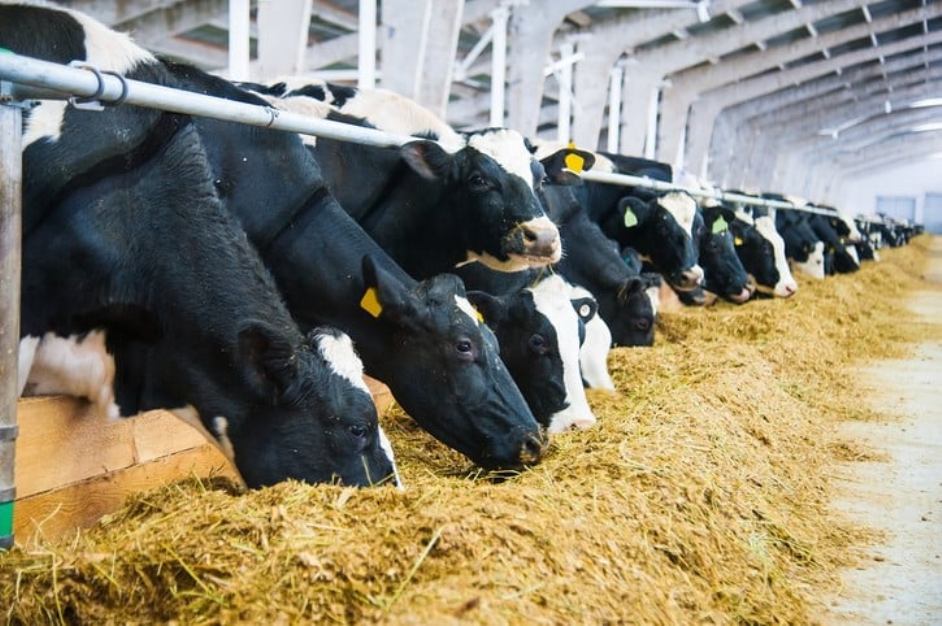President Yoweri Museveni has signed three bills into law. The President assented to the bills on Tuesday, May 14, 2024. The bills signed into law include; The Animal Feeds Act, 2023, The Veterinary Practitioners Act, 2023 and The National Records and Archives (Amendment) Act, 2024. The three bills were recently passed by Parliament and were awaiting President Museven’s assent.
The Animal Feeds Act, 2023 provides legislative framework for the operationalization of the animal feeds policy by regulating the production, importation, exportation and marking of animal feeds and establishing the animal feeds committee to regulate the production, importation, exportation and marking of animal feeds.
While tabling the bill before Parliament on on Wednesday 25 October 2023, the Minister for Agriculture, Animal Industry and Fisheries, Frank Tumwebaze, said: “Inadequate animal nutrition was identified as one of the factors that limit Uganda’s production of livestock products.”
He added that Animal feeds account for 70 percent of the production costs and therefore have a significant effect on production costs and the profits.
The Animal Feeds Act also provides for the application for the registration of premises and the circumstances under which a certificate of registration may be suspended or revoked.
Similarly, the Act will see the establishment of offices for animal feeds inspectors and animal feeds analysts. The animal feeds inspector shall inspect premises and seize any animal feeds that is produced contrary to the requirements of the Act.
Furthermore, the Act gives the Minister powers to make regulations, under the Act to provide for the procedures and forms to be used, for the application for registration of premises and licences for the, production, storage, transportation, or sale of animal feeds and for the fees for the paid under the Act.
According to the minister, productivity of livestock in Uganda is low due to the prevalence of animal diseases, inadequate nutrition for the animals, scarcity of water in the semi-arid areas, lack of facilities for the storage and processing of animal feeds, the lack of laboratory facilities and the lack of information, knowledge and skills on animal feeds production amongst other factors.
Penalties
The Animal Feeds Act places a fine of Shs5M or jail term of 5years for anyone found liable of dealing in adulterated or contaminated animal feeds.
In clause 29(3) the Act states that; Any person who adulterates or contaminates animal feeds commits an offence and is liable on conviction to a fine not exceeding two hundred fifty currency points or to a term of imprisonment not exceeding five years, or both.
Clause 8 makes it mandatory for licensing of production, storage, transportation and sale of animal upon payment of fees prescribed by Regulations made under this Act and shall be valid for a year from the date of issue.
The Ministry of Agriculture further proposed in clause 8(6) to have any person who produces, stores, transports or sells animal feeds without a valid licence to be held liable on conviction- (a) in a case of an individual, to a fine not exceeding one hundred currency points equivalent to Shs2M or a term of imprisonment not exceeding one year, or both; or (b) in case of a body corporate, to a fine not exceeding two hundred currency points about Shs4M.
In clause 11, Government has set up modalities to be followed before anyone can import animal feeds including the need to apply for an import permit and this should be done at least ten working days before the animal feeds is imported.
In clause 11(7), the Act says that; A person who imports animal feeds contrary to this section commits an offence and is liable, on conviction, to a fine not exceeding two hundred currency points (Shs4M) or to a term of imprisonment not exceeding one years, or both.
The Act also has procedures to be followed for anyone with interest in dealing in the exportation of animal feeds, requiring these individuals to apply for a sanitary certificate, at least ten working days before the animal feeds is exported.
Clause 12(5) says any person who exports animal feeds contrary to this section shall be held liable, on conviction, to a fine not exceeding two hundred currency points (Shs4M) or to a term of imprisonment not exceeding one year or both.
Government in clause 17 (1) has barred any person from importing or producing animal feeds which contains veterinary drugs or hormones, without the approval of the National Drugs Authority.
The Ministry of Agriculture in clause 17(4) proposed to bar a person from importing or producing locally, animal feeds which contains veterinary drugs or hormones contrary to this section and anyone found doing so shall be held liable on conviction to a fine not exceeding two hundred currency points (Shs4M) or to a term of imprisonment not exceeding one year, or both.
Government also proposed that in addition to the penalty provided above, Court may order for the destruction of the animal feeds that contains veterinary drugs or hormones, at the expense of the importer or producer of the animal feeds.





